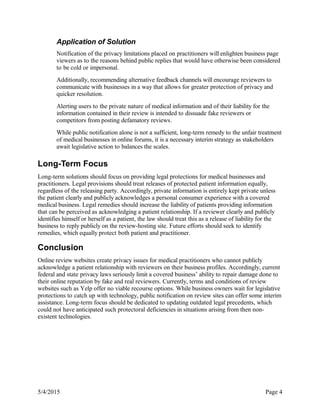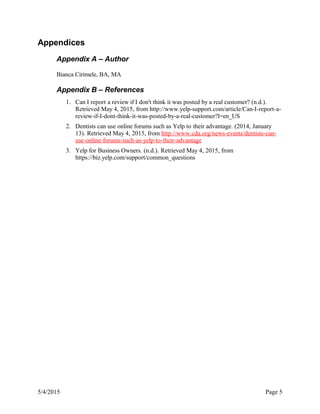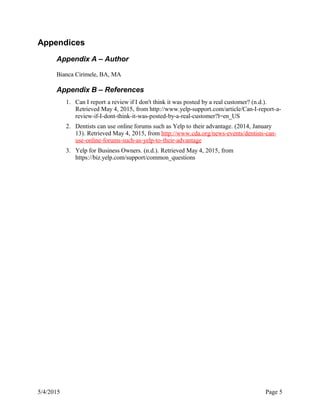The document discusses the issues that medical practices face with patient reviews on public websites due to privacy laws. It notes that while the law protects a patient's right to post reviews, laws like HIPAA greatly restrict a practice's ability to respond without risking privacy violations. This creates problems for practices to address defamatory reviews. The document proposes notifying website users of these legal restrictions on medical practices and encouraging alternative feedback channels. It also advocates for long-term legal solutions to better balance patient and practice rights regarding online reviews.
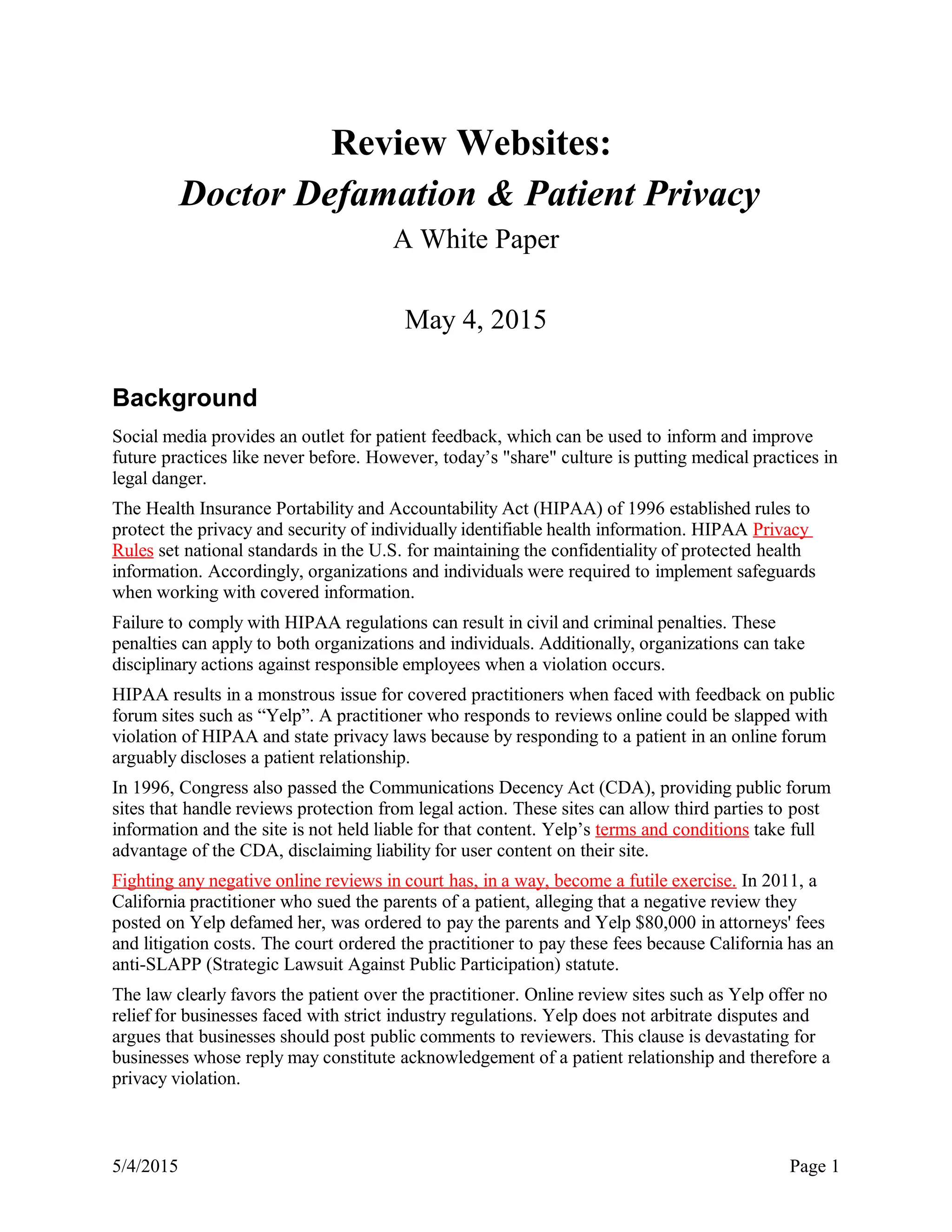
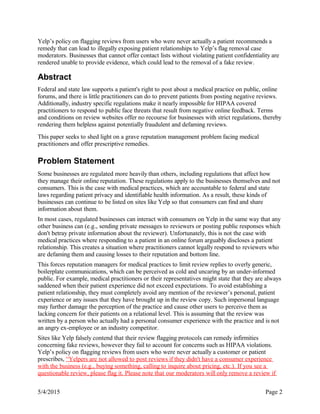
![the consumer doesn't describe a consumer experience. It usually isn't enough to say that you don't
recognize the reviewer as a real customer, so please let us know if you have specific evidence
about who wrote the review.” The language here implies that businesses are expected to provide
evidence that a reviewer did not interact with their business.
Proving that a person had no interaction with a business might entail providing evidence such as
call logs, contact lists, payment receipts and other exhaustive lists with no sign of the reviewer’s
name or other contact information. This is assuming that the reviewer in question used their real
name on their Yelp profile and that identifiable information such as an e-mail address or phone
number are even available. Businesses that cannot offer contact lists or other supporting
documents without violating patient confidentiality are rendered unable to provide evidence,
which could lead to the removal of a fake review. Accordingly, Yelp’s policy leaves covered
medical practices with the choice of being defamed or risking a violation of federal and state
privacy laws. Yelp’s unfair treatment of covered medical businesses is both unfair and highly
unethical.
Proposed Solution
New measures must be taken to increase public awareness of the limitations faced by medical
businesses on review websites. Awareness alone will not resolve inadequacies in legal protections
available to covered medical businesses. However, increased transparency and public awareness is
a step in the right direction.
Introduction of Solution
Public review sites must take steps to notify users of the legal limitations faced by
businesses that are held accountable to federal and state laws concerning patient privacy
and identifiable health information.
Business representatives who claim business profiles on review sites should be asked if
they are held accountable to federal and state privacy laws such as HIPAA. If the page
owner confirms that they are a covered organization, a notice should be clearly posted on
their business profile for all users to see.
Recommended notification messaging points might include the following:
• NOTE: This business is legally responsible for adhering to federal and state privacy
laws [HYPERLINK TO A PAGE WITH LINKS TO RELEVANT FEDERAL
AND STATE PRIVACY LAWS], which restrict their ability to publicly and
personally respond to reviewers. Users are encouraged to contact the business in
person, by phone, or private message before posting a review. WARNING: You
are legally liable for the information contained in your review.
• NOTE: Medical information is private and is subject to legal restrictions
[HYPERLINK TO A PAGE WITH LINKS TO RELEVANT FEDERAL AND
STATE PRIVACY LAWS], for both patient and practitioner. Users are
encouraged to contact this business in person, by phone, or private message before
posting a review. CAUTION: You are legally liable for the information contained
in your review.
5/4/2015 Page 3](https://image.slidesharecdn.com/fc17372a-4bed-42f8-b1d4-4813ecdf22c8-150504152621-conversion-gate02/85/Bianca_Cirimele_Whitepaper_HIPAA_Reputation_Management-3-320.jpg)
